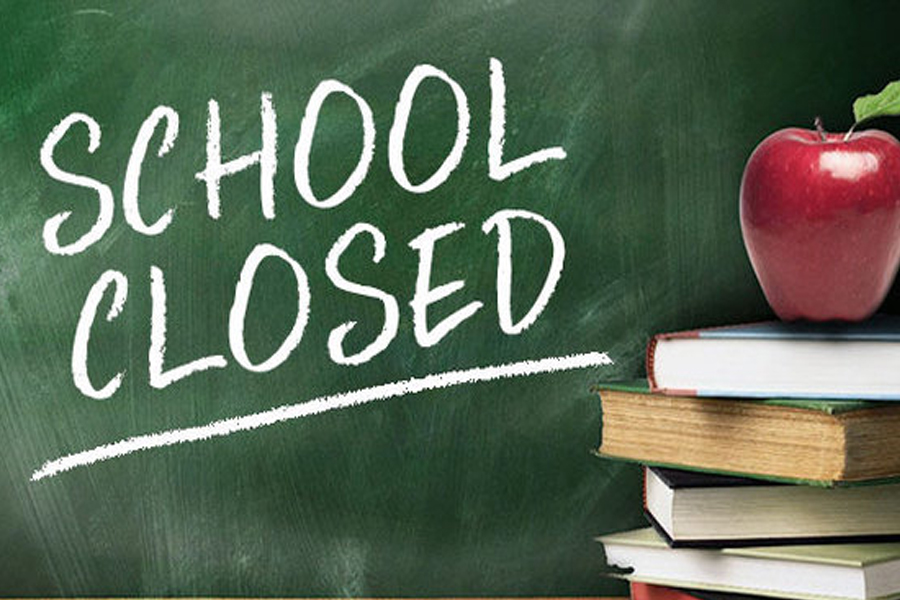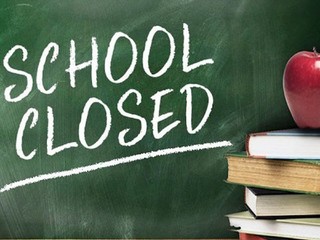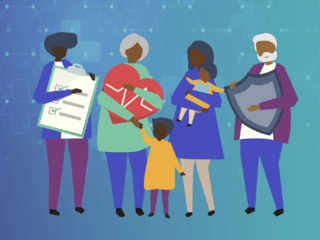
Last week, Vator, UCSF Health Hub and HP held a mini event in anticipation of our Healthcare in Politics event in October (register here!), where we some of the panelists got together to some of the topics that we will touched on at the main event next month.
The panel, hosted by Bambi Francisco Roizen (Founder & CEO, Vator), Archana Dubey (Global Medical Director, HP) and Mark Goldstein (Chairman, UCSF Health Hub) featured Esther Dyson (Executive Founder, Wellville; Angel investor), Sally Pipes (President and CEO, Pacific Research Institute), Dr. Amber Hewitt (Director of Health Equity, Families USA), Duncan Davidson (Partner, Bullpen Capital), Joel White (President of Horizon Affairs) and Phil Kerpen (President, American Commitment).
Most of the first half of the discussion centered around education, specifically if schools should reopen for in-person sessions, and how to best allow that to happen while keeping everyone, including children, teachers and administrators, safe. The overwhelming consensus from the panelists was that in-school learning should happen as soon as possible, and that the risk to children is relatively low.
Francisco started it off by talking about her four sons, one of whom is doing what she called “Zoom school.”
“Everybody who has kids, you know what we’re thinking about right now: school. So, I just want to mention that by not attending, as you all know, this has a negative impact, not on just kids whose parents are in the knowledge economy but particularly kids in low income communities and single parent homes. They’re disproportionately impacted by kids not going to school,” she said. “Recently there’s a study that showed 29 universities with nearly 26,000 COVID positive tests but zero hospitalization rates. And in July, the CDC said it was important to open up schools. ‘So far, in this pandemic, deaths of children are less than in each of the last five flu seasons, with only 64. The rate of infection from schoolchildren to teachers is low.’”
“What can be done to get our school open?” Francisco asked the panel.
Hewitt spoke first, mentioning that “the health of children, families and school administrators and staff,” have to be “top of mind.”
“Similar to the disparities that we’re seeing for the Black, indigenous, Latino, people of color, rural areas, we also see inequities in the education system. Whatever plan a locality or a state has, they have to make sure that it addresses some of the inherent problems within some schools. If kids are going to school buildings that have poor air quality, we know that poor ventilation is not what we need right now in addressing the COVID-19 pandemic,” she said.
Dubey then brought up that there are healthcare, such as speech therapy, mental health and special education, which are, she noted, “very much dependent on the school system.”
“As we are entering more a Zoom education scenario, it is taking those essential elements away and in a space where health equity is already skewed. And if you add this on top of COVID-19, all of these resources falling apart for that child, it also impacts their physical health and growth in the long run too,” she said.
Policies, said Dubey, need to look at how they are supporting schools to bring kids back, especially those with those critical needs.
“For some kids, school is a source of healthy meals. Some of the kids may not even have laptops or computers to be able to attain their Zoom education. Those are things that we are seeing as a disparity now expanding that gap even more as the COVID-19 becomes a reality with homeschooling.”
Davidson responded by bringing up his own daughter, who is a teacher in California, and who has three kids of her own, two of which are school age. She wasn’t in favor of opening schools a couple of weeks ago, but she is now, he said.
“Why? The ones who are at home are extremely depressed. They want you to go to school. And so now she has changed her point of view to, ‘Okay, teachers will wear masks, we’ll do safe stuff, we’ll make sure they’re okay.’ I tried logic on her. ‘What about essential workers, a two parent family where one’s going to go to work, one’s going to stay home and lose his or her job?’ There’s a lot of negative things, beyond the food for kids and all that, the lack of equality in terms of electronic means, but, in the end, what seems to be grabbing her is her children are being affected by this and therefore, ‘Let’s see if we can change it.’”
While answering the question, White brought it back to the data, which shows that the risk of getting sick and dying of COVID in children is very low.
“We really need to get our wits about us because what the data shows us is that if you are under age 25, there’s been 400 deaths, and most of those have been due to Kawasaki disease, that young children really are not at high risk for profound health consequences here. And so, having the schools closed is having a profound effect on children and that is in terms of mental health, and their societal development and their education. We need to weigh that against the risk of the potential health outcome from COVID, which is very, very small,” he said.
Instead, said White, the real impact on these children is happening because they aren’t going to school, to which Dyson responded that the danger is not only to kids, but to the people they might interact with. More importantly, she said, we have to get our priorities back in order.
“Personally, I’d like to shut down all the bars and figure out how to open up the schools. We’ve got a lot of priorities messed up. The problem is the schools are a mess anyway, we need to do them better and it’s the poor kids who have crappy schools that don’t get all the kinds of things Amber is talking about in the first place. It’s very complicated. We should have more schools being available but, ultimately, the parents should be deciding what risks they want to take with the health of their own family members, what the trade-offs are,” said Dyson.
What we need to focus on going forward, she noted, is making the whole system better “so that we do get actually effective health services provided through the schools, so that we can defund predatory healthcare, in favor of community-based health services that keep people health, rather than waiting for them to get sick.”
“What we need to fix now is, candidly, much better information, much more widespread, effective testing, and then helping people with good information to make decisions that suit them, but the fundamental decision doesn’t affect other people.”
Children have low infectivity
Kerpen took issue with Dyson’s characterization of children being contagious, and rattled off a number of stats that show the exact opposite being the case, including in Iceland, where they did a haplotype to determine the direction of transmission, and found no transmissions from a child under 10 to an adult; there were two cases of a child over 10 transmitting it to their parent.
“We don’t know the exact reason that children seem to have such low infectivity, but we now have a very large amount of empirical evidence that it’s the case. And almost everywhere that we’ve seen what appear to be clusters in schools, it’s really a reflection of community transmission, rather than the school itself being a setting where transmission is occurring,” he said.
The one exception to that was in Israel, though the country had opened up large events, like weddings, and the major problems in schools came after a holiday weekend.
“What was really striking to me about the Israel data was the report that the European CDC put out, in which they found that of all the 150 or 200, whatever those initial cases were there that were identified in the Israeli schools, they only found one secondary transmission in the school, it was a child to child transmission. So, they only found, even from a very large number of community transmissions coming into the school, of course zero student to teacher and just one instance of a student to student,” said Kerpen.
To him, this all means that schools never should have been shut down in the first place.
“Schools are not a high-risk setting. The CDC has been a very clear that they never recommend school closures. This was really a moral panic and contagion and sort of a paranoia. And, frankly, even where we’ve seen no containment measures put in, in places like Cherokee County, Georgia, where we have a big panic about a picture in a hallway. Well, they’ve been in full time school for five weeks now, with no masks and no distancing and with 42,000 students and 5,000 staff, so 47,000 total, they presently have 27 active infections. We’re not seeing what people said we would see in Europe, we’re not seeing it in the United States, we’re not seeing transition schools with or without containment.”
Kerpen also mentioned increased suicide rates among young adults not allowed to go to school, which more than doubled from 11 percent to 25 percent.
“Based on statements from Robert Redfield, he hasn’t released the data, but he said publicly that we’re seeing increased in the school-age demographic as well, just the excess of suicide and overdose deaths, than we are seeing total COVID deaths. So, I believe that the school closures and lockdowns are, on net, killing children, they’re certainly not saving them. And we also have a lot of evidence that, to the extent there is any child to child transmission in the schools, it’s less than we would have in child transmission in the home setting,” he said.
“We’re really overthinking it. We sort of backed ourselves into this when all of the schools, even though the CDC never recommended that. And we’re tripping over ourselves to get out of this trap when it should be a lot simpler.”
Francisco then posed a question to Hewitt and to Dyson: in low income communities, what is being done to help those student get an education during the pandemic, despite not having the same resources as more affluent communities. Francisco also asked whether charter schools are implemented in the communities they work with.
Hewitt answered first, to clarify that she is in favor of kids being in the school, “with the caveat that if we’re following proper guidelines and that it can be safe and effective for all.”
“I think that I may be the only mental health professional opinion on the panel, I’m a psychologist by training and have provided psychological services in school and I definitely understand that children not being in school is very disruptive. Suicide was also mentioned; actually this month is suicide prevention month, so I definitely think it’s important to bring up the mental health aspect. I’m not a parent, but I’m the aunt of four kids. I have little cousins that I consider my nieces and nephews, but four school-aged children are all right now in public school in Louisiana, so I definitely wanted to clarify that point,” she said.
“So my two main points are: to make sure that plans are nimble and flexible to respond to what’s happening currently. And, Bambi, as you mentioned, making sure that all kids are able to be learning at this time. Long gaps in learning, we all know the data, and the impact on that, and making sure that there is proper funding for schools to implement the proper safety measures and for all students to access virtual learning.”
Dyson used her time to respond to Kerpen, and to acknowledge all the data he had mentioned.
“I’ve heard some of that and I feel a victim of what we’re all getting, which is all these conflicting stories and bits of data. If it’s quite as clear as that I’m surprised. Clearly I agree with you entirely that the worst impact of COVID-19 is the long term impact on the next generation. And we’re making a mess of it, clearly. To me, one of the biggest challenges is, charter schools are great but they’re the kind of solution that absolves the public of creating a better solution, which is we really need to redo how we do the funding of public education. We need, basically make it better, we need to allocate it better. We need to do a much better job of reaching all the kids, and my concern is that we’re exacerbating the inequities as well as the problems overall right now,” she said.
“That’s the thing that really concerns me, because the rich kids will do okay, one way or another; not all of them obviously. It’s the poor kids, the ones on Medicaid and all those things, they don’t solve this problem. They don’t reach enough kids. They reach that sort of middle group that knows how to get access to them. But we’re really exacerbating the problem at the bottom end. Yes, let’s open the schools, but there’s so much else we have to do as well.”
The last to speak about this issue was Pipes, who also reiterated what Kerpen had said about school closings leading to more suicides.
“The numbers that Phil just talked about: a CDC report last month found that that one quarter of adults from 18 to 24 had contemplated suicide in the last month, and there’s a high degree of depression among people out there that are stuck at home alone. I do think we have to get our kids back to school; it’s worked in Europe, the British kids are now going back to school. We really need to do a lot of work to get our kids educated to compete in the global economy and the STEM programs are very very important, so I want to get kids back,” said Pipes.
“The other thing is different choices, like charter schools, school choice and private schools and parochial schools, public schools, all types of schools, let’s have the best type of school for the family and what they want for their children.”
While Dubey said she agreed with the general discussion around bringing kids back to school, she also had some misgivings about how it has been handled so far.
“The Journal of Pediatrics did come out that kids do carry a lot of viral load in their nose. Yes, we have not seen contagion from kids to adults, partly because we have been also somewhat in shelter in place. Being a physician, I do need to bring all of these perspectives to the table: their condition is very new, it’s unfolding in front of our eyes, and, as kids are going back to school, only then we’ll find out contagion, and how it happens,” she said.
When comparing the U.S. to other countries, Dubey noted, you have to look at how they handled other aspects of the pandemic. In South Korea, for example, their schools have been following guidance around how to keep people saffe.
“Our guidance is not standardized across schools. So, what Bambi was mentioning is that a charter school may have something going on, the private school has something else going on. We need to have proper guidance and proper rails in place so that, if there is a case indeed, how do you address that? We have failed that in public setting and in public health, how would we do it in a school health setting?” she asked.
While she wants her own son, who is a senior in high school to go back to school, she isn’t sure that his school is doing all it can to keep people safe.
“I also am not sure that his school is putting in all of the proper policies and guidance that the CDC has provided. They’re not following what I would like them to follow as a parent, so how do we have that transparency on communication?”
Thanks to our sponsors: UCSF Health Hub, HP, Avison Young, Advsr, Scrubbed, Alchemist Accelerator, and Stratpoint.
(Image source: dresdenbuzz.com)




















